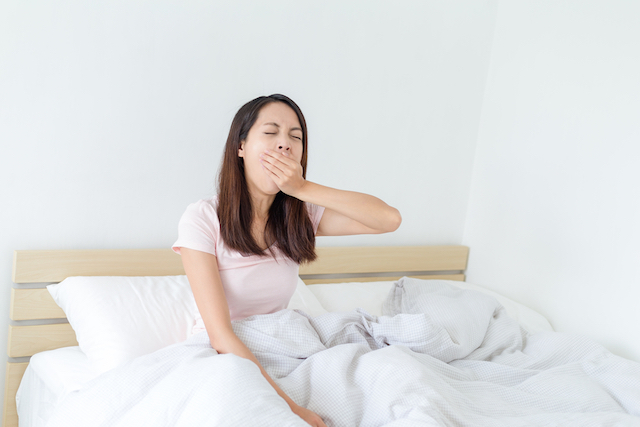HEALTH
Wellness
Are you getting too much rest, Sleeping Beauty?

It's mid-July, which means you’re finally in the groove of summer—you’ve been eating well, swimming every chance you get and hanging with your besties every day. Most importantly, though, having three months of free time means this: no dreadful alarm clock going off at 7 a.m. Not a complaint in the world, right? Well...
Although sleeping as long as you want sometimes feels great, it can actually be associated with negative symptoms that will make you feel worse in the long run. According to WebMD, sleeping too much on a regular basis can lead to symptoms of depression, anxiety, low levels of energy or even loss of memory. There are also other medical conditions that might occur as a result of sleeping too much, such as headaches and back pain.
So how much should you be sleeping? And when is it okay to sleep "all day?" The amount of sleep you need every night differs from person to person. People who are recovering from an illness need more sleep than others in order to fight off an infection and feel better. At the same time, someone with sleeping difficulties such as sleep apnea might require more sleep to feel well rested the next day. Those who are exercising heavily also need to rest a bit more to allow muscles to recover overnight.
The following list, as given by the National Sleep Foundation, explains the recommended average amount of sleep you should be getting each night depending upon your age:
Ages 1-2: 11-14 hours
Ages 3-5: 10-13 hours
Ages 6-13: 9-11 hours
Ages 14-17: 8-10 hours
Ages 18-25: 7-9 hours
Ages 26-64: 7-9 hours
Ages 65+: 7-8 hours
As you can see, infants are the only people who should be getting more than 12 hours of sleep in a night. If you’ve been sleeping from midnight to noon most days this summer and have been feeling sluggish, funnily enough, sleeping might actually be the cause. Try setting an alarm for the morning right before you fall asleep—if you’re 15 years old, set your alarm for nine hours later to ensure you’ll be getting the right amount of sleep. Although it might be difficult to wake up to your alarm at first, you’ll start to realize you’ll actually feel better and more awake once you’re receiving the right amount of sleep.
There’s also an added bonus to getting the recommended amount of sleep and getting up earlier: you can do something productive during the time you would otherwise have been sleeping. Take your dogs for a walk, go to brunch with your friends or get some homework done for your summer classes. Just keep in mind: if you’ve been feeling extra tired, sleeping more isn’t always the solution.
How much do you sleep each night? Do you feel like you need more or less sleep?
POSTED IN stress, sleep, always tired, sleep tips, mental disorders, doctor, health, mind/motivation, summer, HEALTH, Wellness, dealing with depression

 become a contributor
become a contributor


















